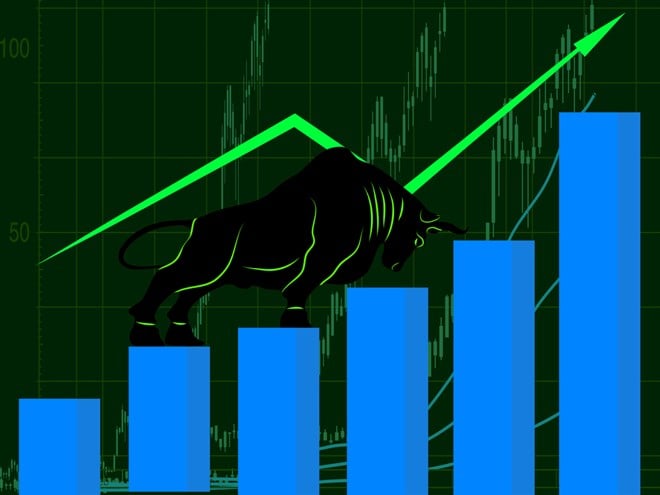
It wasn’t that bad after all.
With the second quarter earnings season almost in the books, worries about a rash of negative earnings surprises have proven to be unfounded. According to the latest insight from Factset, roughly three out of four S&P 500 companies have reported positive EPS surprises, on par with the historic norm.
On the other hand, the big splash variety of earnings beats have been harder to come by. The average magnitude of the beats has significantly lagged the past.
This means that companies that did wow us with big earnings surprises have stood out more. Based on the market’s reactions, we could someday look back at Q2 earnings as a major inflection point for these three stocks.
What Did We Learn From Trade Desk’s Q2 Report?
Digital advertising leader Trade Desk, Inc. (NASDAQ: TTD) matched Wall Street’s EPS forecast of $0.20 but breezed past its top line estimate by reporting $377 million in Q2 revenue. The 35% year-over-year sales growth helped ease concerns of a major pause in global ad spending due to economic uncertainty—and sent Trade Desk shares flying.
The stock gapped up 36% in heavy volume last week, distancing itself from the $50 where it had lingered since the last earnings announcement. The last time Trade Desk garnered as much trading attention in November 2021, it climbed to a record split-adjusted high above $110.
Now trading in the mid-$70’s, there is still significant ground to make up—but some analysts think it's on the right path. Eight of nine sell-side firms reiterated buy ratings after the surprise Q2 update including Wells Fargo, which set a $100 price target.
The result and management’s bright outlook showed that demand for programmatic advertising is resilient. With a steady customer retention rate of 95%, some of the world’s biggest consumer brands continue to rely on the Trade Desk platform to power their omni-channel marketing campaigns. Grocery store chain operator Albertson’s recently became one of the latest to pull up a chair at the Trade Desk.
Has Abbott Labs Stock Bottomed?
Last month, Abbott Laboratories (NYSE: ABT) posted Q2 EPS of $1.43 that marked 22% year-over-year growth and crushed the consensus estimate by more than 25%. The surprise was led by a strong performance in the company’s diagnostics business, which delivered 36% revenue growth thanks to strong demand for rapid Covid-19 tests. It hauled in an additional $1 billion in Covid testing sales compared to the prior year period.
While the diagnostics segment stole the show, even without Covid testing Abbott Labs generated 6% organic sales growth—a reflection of ongoing strength in pharmaceuticals and medical devices. The well-balanced growth combined with management’s upwardly revised EPS guidance sent the stock firmly off its 52-week low, and it has since settled in at the $110 level.
Going forward, Abbott’s rapid diagnostic still has plenty more to give. The company sharply raised its full-year Covid test revenue guidance from $4.5 billion to $6.1 billion as caseloads continue to flare up in Asia and other parts of the world. Meanwhile, the relaunch of infant formula is expected to provide a significant boost to second half earnings.
With analysts raising their EPS estimates in the wake of the Q2 report and Abbott having a history of topping those estimates, the stock appears to have the wind at its back heading into the final months of the year. It is still down 21% year-to-date but, at a below-industry 23x earnings, has room to run.
Has Citigroup Stock Reached a Turning Point?
Citigroup Inc. (NYSE: C) gapped up in three-times average volume after its Q2 report and has trended higher since. Although earnings were down from a year earlier, they were 30% above what the Street was anticipating.
The statement release was driven by improved net interest income that was buoyed by the Fed’s aggressive rate hike campaign. The ‘big four’ bank was able to charge more on its mortgages and other loan products, offsetting weakness in the investment banking business.
With more Fed rate hikes likely ahead, Citi’s earnings prospects are looking up for at least the next couple of quarters. From there, the fruits of long overdue investments in the personal banking and capital markets divisions could keep the momentum going.
If the market does encounter a pronounced recession along the way, Citi is in a better position than most banking peers to weather the storm. In response to the Fed’s June 2022 stress test, the company announced that it will be raising its stress capital buffer to a more conservative 4%.
Unfortunately for shareholders, the cautious financial stance comes at the expense of a stagnant dividend and suspended buyback program. Still, the stock’s 3.75% forward yield remains comfortably above the financial sector average of 3.2%. This along with expectations of more hawkish Fed action should make Citi shares worth banking on.












